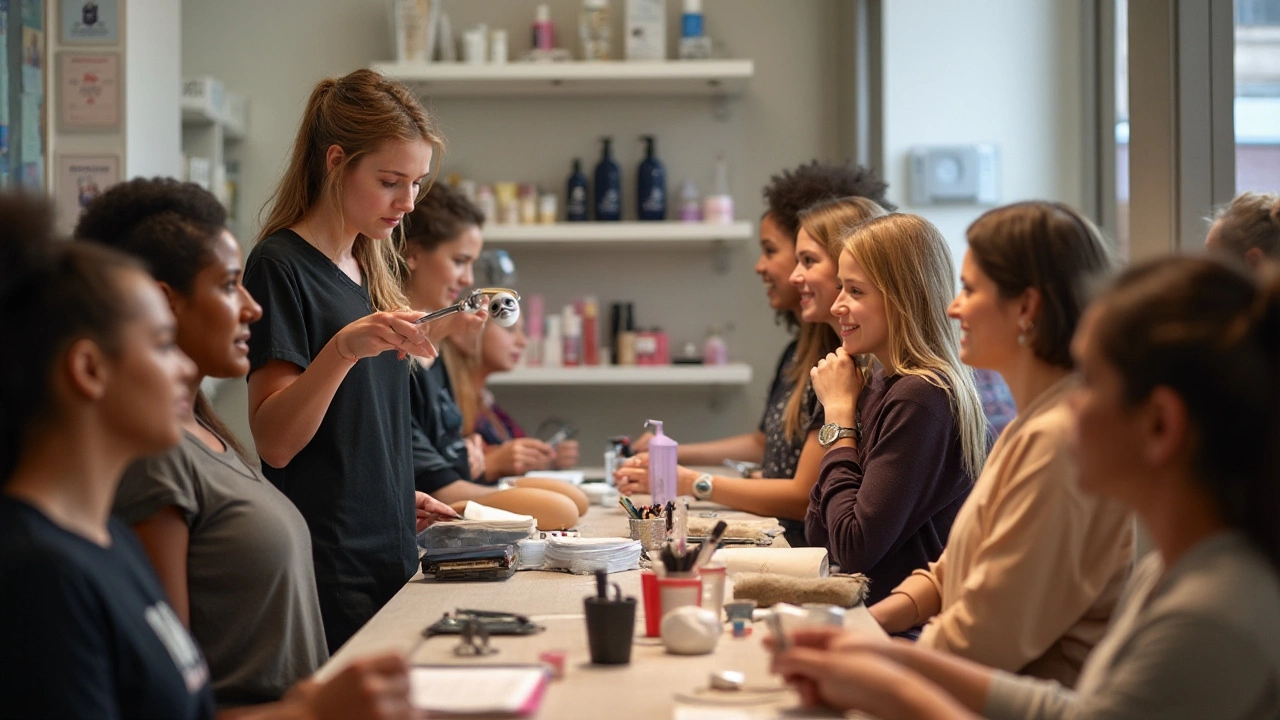Beauty Therapy: Your Path to a Fulfilling Career
If you love helping people look and feel their best, beauty therapy could be the perfect fit. It’s more than just facials and nails – it’s a growing field with real pay, clear qualifications, and lots of room to specialize.
What Exactly Is Beauty Therapy?
Beauty therapy covers skin care, body treatments, hair removal, makeup, and even some wellness services like aromatherapy. In the UK, most roles require an NVQ Level 2 or 3 in Beauty Therapy, which shows you can deliver safe, professional treatments. The qualification is work‑based, so you learn on the job as you practice.
Many schools also offer SVQ equivalents for Scotland, but the core skills stay the same: client consultation, sanitation, product knowledge, and hands‑on techniques. Once you’re qualified, you can work in salons, spas, hotels, or start your own business.
Steps to Become a Beauty Therapist
1. Research Courses – Look for providers that offer the NVQ or SVQ you need. Compare course length, fees, and placement support. Some programs let you train part‑time while you work, which helps with cash flow.
2. Enroll and Attend Classes – Expect a mix of classroom theory and practical labs. You’ll learn skin anatomy, product ingredients, and how to run a booking system.
3. Complete Your Assessments – Assessments are usually a mix of observed practicals and written tasks. Keep a portfolio of client work; it’s useful when you look for a job.
4. Get Certified – After passing, you’ll receive an NVQ or SVQ certificate. This is what employers ask for when you apply.
5. Start Working – Apply to salons, spas, or health clubs. Many entry‑level jobs pay between £15‑£20 an hour, plus tips. If you’re ambitious, consider specializing in high‑paying niches like medical aesthetics or luxury spa treatments.
Want to know if the investment is worth it? A recent article on our site, “Is Becoming a Beauty Therapist Worth It?” breaks down the pros, cons, and real‑life earnings. In short, the median salary for a qualified therapist in the UK sits around £22,000, climbing to £30,000‑£35,000 once you add experience and specialist skills.
While the training cost can range from £1,200 to £3,000, many colleges offer finance options or apprenticeships that let you earn while you learn. It’s also smart to check if your employer offers tuition reimbursement.
Beyond money, the job offers flexibility. You can work part‑time, shift‑work, or set your own hours if you run a boutique spa. Building a loyal client base means repeat bookings, which boosts income without extra marketing effort.
To stay ahead, keep learning. New skin‑care technologies and product lines emerge each year. Short courses in micro‑needling, LED therapy, or organic product lines can help you charge premium rates.
Finally, remember that client service is king. A friendly greeting, remembering a client’s preferences, and delivering consistent results will earn you referrals faster than any advertising budget.
Beauty therapy is a hands‑on career that mixes creativity with practical skill. With the right qualifications, a bit of hustle, and a focus on client care, you can turn a passion for beauty into a rewarding, well‑paid profession.




